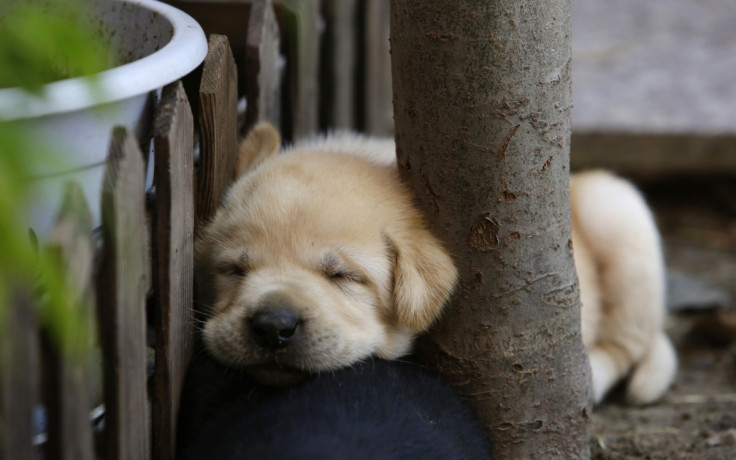Imported puppies bring life-threatening diseases to the UK

Prospective pet owners keen to own a "designer" dog but who can not afford the expense of getting one from a breeding centre are risking disease when they buy a puppy off the black market, an investigation has found.
It has emerged that the unhygienic conditions in which dogs are bred and transported means they carry a host of diseases, many of which can be life-threatening to humans.
An investigation by the Daily Mirror has shed light on the pet smuggling trade being run by Irish and Eastern European gangs through which an average of 200 sickly puppies are brought into UK daily and later sold to unsuspecting owners.
Now the London veterinary director of Royal Society for the Prevention of Cruelty to Animals (RSPCA), Caroline Allen, has said that along with ticks and fleas, many of these dogs are carriers for diseases like rabies, parvovirus, echinococcus and leishmaniasis.
These, as well as harming the pets, can easily be transmitted to humans and lead to a number of health complications, some of which can be fatal.
"Cases are rising and it's worrying. We have thousands of dogs coming in without the proper checks or the proper measures, which is a real problem. The more animals that come, the bigger the risk not just for the puppies but other dogs and humans," Allen said.
"If dogs are kept together in terrible conditions it spreads easily, especially with pups travelling long distances."
RSPCA started the Scrap the Puppy Trade campaign to petition the government to introduce laws to combat illegal puppy dealers by having all breeders and animal sellers registered. It has already garnered 50,000 signatures since its launch in October 2015.
The charity's assistant director of public affairs, David Bowles, said: "It's unclear if this demand for these specific breeds can be met from existing registered breeders within the UK. But what's clear is that the puppy dealers are one step ahead of the regulators and have already responded to these changing demands and are sourcing these breeds from overseas or large scale commercial puppy farms.
"The market and trade in puppies is largely unregulated, resulting in welfare problems with puppies and the breeding stock, dissatisfied often distressed consumers, and a hidden economy."
In many cases, buyers are unaware that they are purchasing smuggled puppies as the sellers provide fake paperwork created by vets bribed to forge passports, change birth dates and vaccination details.
Adrian Burder, chief executive of the Dogs Trust charity, told the Telegraph: "As a nation that loves dogs, we know the lengths people will go to in order to get the perfect puppy – but few would expect their young pet to have travelled over 1,250 miles to reach them.
"Far fewer would expect their illegally transported puppy to come with a fake passport. Even fewer still would consider that their new pet could be carrying a potentially lethal disease. No one would believe that this is happening every day with government knowledge."
He added: "This is not a scaremongering cry about the risk of rabies to the UK but an evidence based report detailing the ease with which illegal puppies can be transported across Europe and can enter the UK."
© Copyright IBTimes 2024. All rights reserved.






